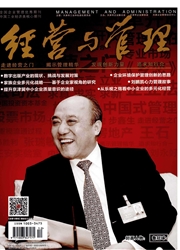

 中文摘要:
中文摘要:
本文分析了管制制度落差与中国企业海外市场进入模式之间的关系,着重对比了管制制度顺差与逆差对企业进入模式决策的不同影响,在此基础上探索了东道国市场的开放程度与制度落差的交互作用对企业海外进入模式的影响。研究发现,当东道国管制制度水平低于中国时,随着制度距离的增大,企业更倾向于采取合资进入模式;当东道国管制制度水平高于中国时,随着制度距离的增大,企业更倾向于采取独资进入模式。研究同时表明,东道国市场开放程度对以上两组关系具有显著调节作用。
 英文摘要:
英文摘要:
The paper addresses the relationship between institutional distance of regulation and Chinese enterprises' overseas market entry modes. It focuses on the impact of favorable and unfavorable institutional distance on enterprises' decision-making. Based on the above, the paper examines the impact of the interaction between the openness of a host country's market and institutional distance on multinationals' overseas equity entry modes. The research finds that in the case of favorable regulative institutional balance, foreign enterprises tend to build a joint-venture subsidiary, as the regulative institutional differences between the host country and the mother country increase. In the case of unfavorable regulative institutional balance, foreign enterprises tend to set up a wholly-owned subsidiary, as the institutional difference between the host country and the mother country increase. Besides, the openness of the host country plays a significantly regulatory role in the two above pairs of relationships.
 同期刊论文项目
同期刊论文项目
 同项目期刊论文
同项目期刊论文
 期刊信息
期刊信息
